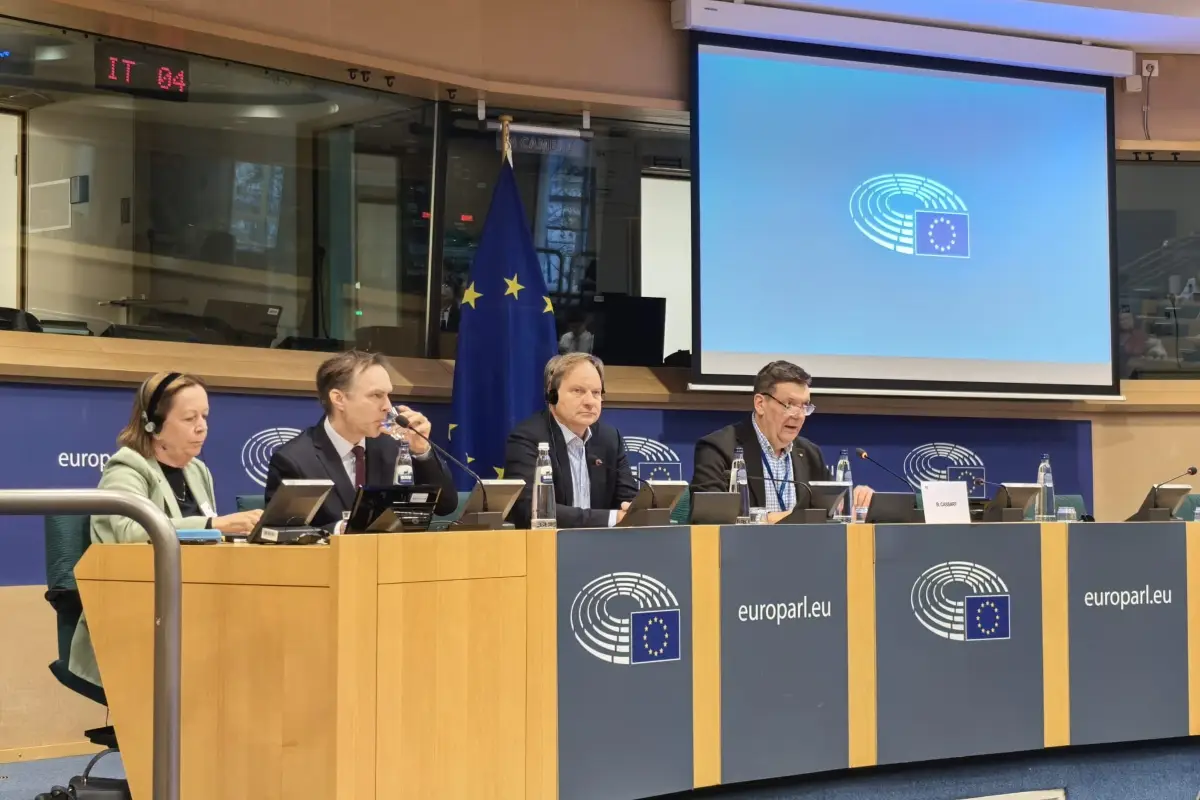
Scientists appeal to the EU: animal proteins are irreplaceable
A conference at the European Parliament calls for the revitalization of livestock production.

The conference organized by Renew Europe under the patronage of Belgian MEP Benoît Cassart , a livestock breeder and co-chair of the Sustainable Livestock Intergroup, was held yesterday at the European Parliament in Brussels. The event's title—"How European Livestock Production Can Ensure Food Accessibility and Food and Nutritional Security for EU Citizens"—reflects highly topical challenges.
The conference focused on the role of livestock production in the context of adequate nutrition: the challenge, which researchers, experts, and policymakers discussed, is balancing nutritional density and food processing levels within the context of culturally and geographically appropriate diets.
The conference, introduced by the Honorable Cassart , was created with the aim of creating a platform for discussion between institutions, academia, businesses, the world of innovation, and civil society, within the context of European policies and a narrative about the livestock sector that is often distorted by ideological and anti-scientific approaches.
"Years of criminalizing animal farming and animal protein," commented Cassart , "have meant that for many people, meat and dairy products are the ultimate evil from a health and environmental perspective. No one wants to promote excessive meat consumption. But thanks to distinguished university professors, we have finally been able to focus on the impacts of a diet too low in animal protein, and we have seen that the damage is significant, undoubtedly on health but also on the climate, because livestock farming has a central role to play in enabling Europe to achieve its decarbonization and bioeconomy goals."
Speakers at the conference included Alice Stanton (Professor of Cardiovascular Therapy, School of Pharmacy and Biomolecular Sciences (PBS), Dublin, Ireland), who, in her presentation "Is forcing the reduction of animal-source foods part of the solution?", focused on the nutritional aspects of animal protein sources and the health risks associated with macronutrient and micronutrient deficiencies in the diet. The Irish professor's argument contradicts the common belief that plant-based diets will play a key role in a future where protein availability appears to be declining. Conversely, "higher dairy and seafood consumption is associated with protection against obesity, diabetes, heart attacks, strokes, brain diseases, and some cancers. Furthermore, poultry and egg consumption appears to have no impact on noncommunicable diseases, and any absolute negative effects of red and processed meat consumption are minimal, uncertain, and tend to be significantly reduced, or even eliminated, when these foods are consumed as part of a healthy diet," Professor Stanton explained.
Professor Peer Ederer (Goal Sciences, Global Observatory on Accurate Livestock Sciences) spoke on “What is the role of livestock in food availability and affordability in the EU?”, highlighting the crucial role played by livestock farming in ensuring food security and affordability for all Europeans. According to Professor Ederer , “replacing meat with legumes in European diets therefore appears primarily a theoretical option. In Europe, proteins derived from cereals are up to four times more expensive than those from animal-based foods, while proteins from fruits and vegetables are up to ten times more expensive. This is due to the low protein concentration in these foods. Their role in a balanced diet is rather to provide energy and micronutrients such as vitamins and minerals, respectively.”
1/Continued
EFA News - European Food Agency